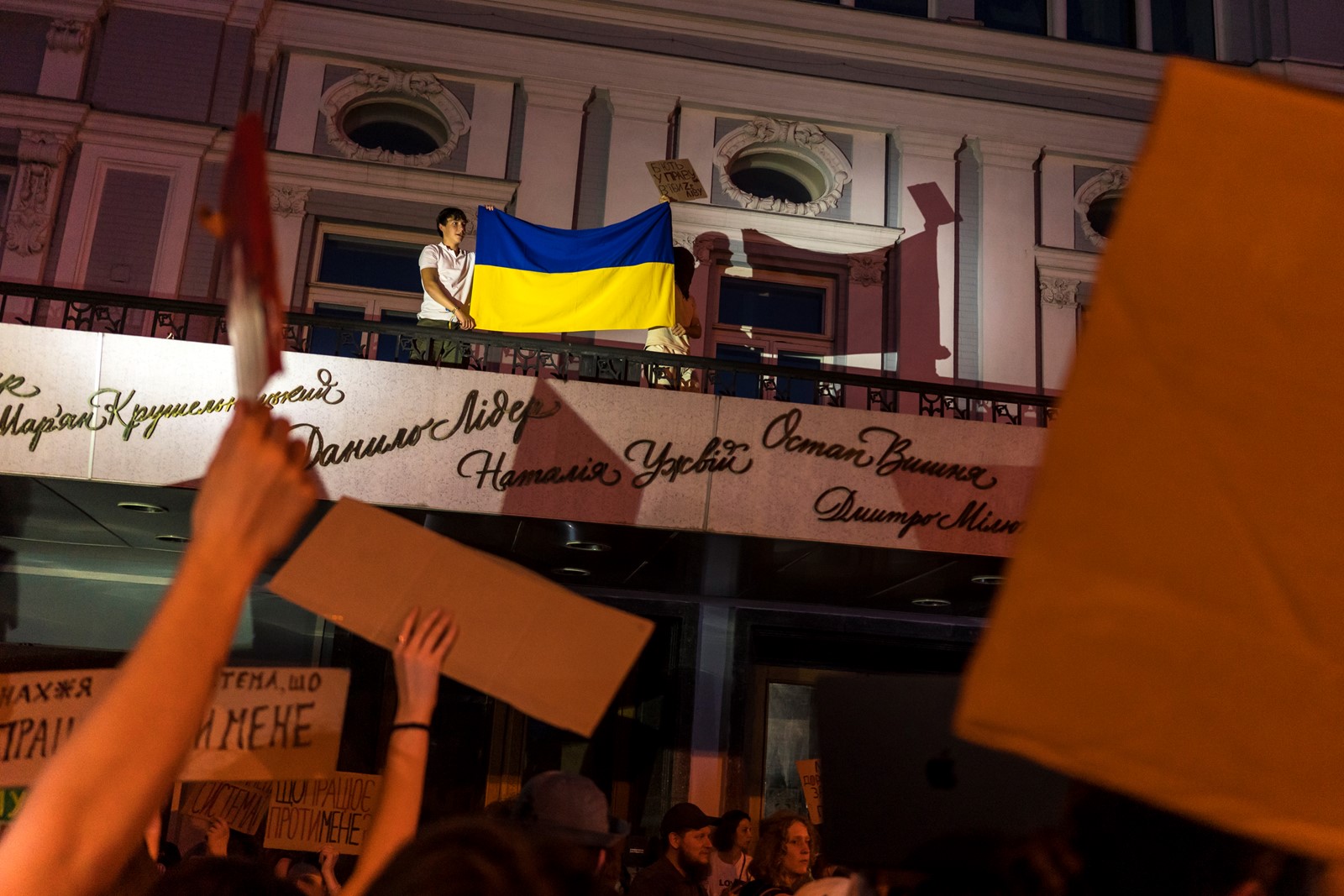
KYIV, Ukraine — President Volodymyr Zelenskyy’s anti-corruption policies have provoked Ukraine’s first anti-government protests since the Russian invasion in 2022. Now, it seems, they may cost the country a portion of its foreign aid from the European Union, in a clear rebuke from the bloc, once a staunch ally.
The European Union said Friday that it would withhold 1.5 billion euros (about $1.8 billion) from an overall fund of 4.5 billion euros whose disbursement is dependent on achieving good governance standards and that can’t be used for military purchases. The decision is not final, however, and the funding can be restored if Ukraine meets certain benchmarks.
Zelenskyy had no public comment on the aid cut, which nevertheless was a setback for Ukraine’s leader, who is depending on European financial support to fill gaps left by the Donald Trump administration’s refusal to underwrite Ukraine’s war effort.
While holding back Western aid to spur reform was common before Russia’s invasion, Friday’s decision seemed to signal a new willingness by the bloc to admonish Zelenskyy’s government on domestic policy during the war. It also raised questions about whether the glow around Zelenskyy might be beginning to dim among Ukraine’s Western allies.
James Wasserstrom, an American anti-corruption expert, said in an interview that “the luster is definitely coming off” Zelenskyy’s wartime leadership among governments providing financial assistance. He added, “There is exasperation at Zelenskyy in the donor community.”
The EU’s decision capped a tumultuous week for Zelenskyy, who first pushed a measure through parliament that stripped the independence of two anti-corruption agencies, raising protests from foreign leaders as well as the Ukrainian people.
He then reversed course, submitting a new bill to parliament to restore the agencies’ independence. That calmed the street protests, but could not head off the EU’s aid cut, which had been decided on the basis of long-standing guidelines.
The two agencies — the National Anti-corruption Bureau of Ukraine and the Specialized Anti-corruption Prosecutor’s Office — had been investigating top ministers in the Zelenskyy government. The president’s decision to kneecap them, though reversed, prompted accusations of cronyism that jeopardized backing from civil society groups at home and Western nations bankrolling the war.
The European Union established this aid mechanism, the Ukraine Facility, last year and promised 50 billion euros over three years for repairing war damage and preparing the country for EU accession. The European Commission spokesperson, Guillaume Mercier, told journalists in Brussels on Friday that Ukraine had requested a disbursement in June despite falling short on three of 16 benchmarks, including failing to make appointments to a specialized anti-corruption court.
That court tries cases brought by the two agencies whose independence Zelenskyy threatened this past week.
Critics in Ukraine have complained about the Zelenskyy government’s steady accretion of power under martial law, with investigations targeting journalists, activists and opposition politicians. His administration has sidelined elected mayors and governors in many regions in favor of military administrators.
Foreign allies are divided on those steps, with some saying they are needed to keep a firm hand on the country in wartime while others dismiss them as a raw power grab.
Among foreign leaders who objected to his targeting of the anti-corruption agencies was British Prime Minister Keir Starmer, who called Zelenskyy to discuss the policy.
The agencies had been investigating senior officials in Zelenskyy’s government, including a former deputy prime minister, Oleksiy Chernyshov, who was charged with corruption on June 23, accused of taking kickbacks in a real-estate deal. Chernyshov has called the accusations against him a baseless smear campaign.


 PREVIOUS ARTICLE
PREVIOUS ARTICLE
